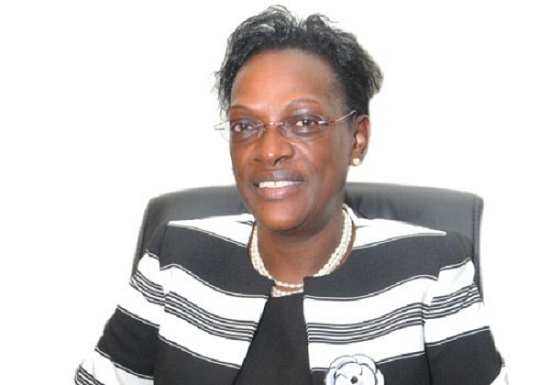
With Bagyenda’s successor, Tumubwiine Twinemanzi, Mutebile told the committee, this was a thing of the past. In fact, he added, while Bagyenda was still in charge, BoU had hit a dead end regarding the negotiations with Crane Bank proprietors. But following Twinemanzi’s appointment, he said, BoU was making good progress with the negotiations.
Amongst all his appointees, Tumubwiine Twinemanzi has been the biggest problem. Twinemanzi’s father, Manzi Tumubwiine, served on the BoU board in the past, is seen as a friend of Mutebile, and also happens to come from Kigezi.
When Twiinemanzi was appointed, IGG Mulyagonja received a whistleblower’s report indicating that Mutebile was driven by tribalism in appointing Twiinemanzi and others from western Uganda. Some board members first blocked Twiinemanzi from presenting before the board. Others always made sure they avoided attending board meetings if Twiinemanzi was to appear.
During the interface with the investigating committee, Mutebile’s voice reportedly cracked as he struggled to hold back tears while making the point that he made the changes in the best interest of the bank. A source knowledgeable about what transpired during the meeting said at that point everyone went silent.
To make his case, he went through the chronology of events that led to the reshuffle crisis. In our previous reports, The Independent had already pieced this together basing on correspondences between senior officials at the bank.
In November, 2017 Mutebile had declined to ratify the appointment of assistant directors and instead directed that the Internal Audit investigate the entire process.
Then Chief Internal Auditor, Deborah Kabahweza concluded that the process had issues and called for its termination.
But the Executive Director Administration (EDA) Solomon Oketcho insisted that Mutebile ignores Kabahweza’s recommendations and approves the appointments. Mutebile refused.
“We have to respect internal audit and cancel,” Mutebile insisted.
When board members were engaged, some suggested that since their term was about to expire, the appointments should be passed for now. But Mutebile stuck to his guns. Shortly after this Mutebile’s health deteriorated and he travelled abroad on sick leave.
When he returned, he found a tonne of complaints about several appointments. The board had been petitioned but had ignored the complaints. Mutebile was concerned that he had not been consulted.
In the meantime, the bank was in a crisis, it had suffered loss of confidence, Crane Bank issues, and had been facing serious failures in some of its systems, according to insiders.
Mutebile explained that he made changes in order to redirect the bank.
But before Mutebile appeared, Bagyenda’s deputy, Benedict Sekabira complained before the committee that the job Twiinemanzi took belonged to him. Another senior official, Oketcho, also initially told the committee that Mutebile’s appointments were outside BoU policy.
He claimed that BoU hardly appoints people from outside its walls. Unfortunately for him, the investigating team had already received information to the contrary. While in the past BoU had a policy to recruit about 20 people annually at the lowest ranks who would be groomed to grow into senior positions that had changed.
Before BoU did not have to recruit from outside its walls, however, over the years this policy has been shunted aside. Indeed, the investigating committee was given a list of over 100 staff who BoU recruited from outside its walls. At that point, Oketcho backtracked and even apologized, a source knowledgeable about the details of the meeting intimated to The Independent.
Specifically, in Twiinemanzi’s case, Mutebile said he was not the first to be recruited from outside BoU. He also said that he deemed him qualified for the job given the fact that he was in a senior position at Uganda Communications Commission (UCC) and had done research about BoU.
Mutebile was the last of the BoU officials to appear before this committee. Many hoped its findings would help with reconciliation efforts amongst the managers at BoU and also guide the appointing authority on the way forward.
But the leaking of documents allegedly exposing Kasekende’s wealth might have added fuel onto the fire in this fight. And these documents come at a time BoU officials are set to appear before COSASE over the revelations of the Auditor General’s report exposing mismanagement of seven defunct banks including Crane Bank. Some of the members of this committee have already called for the resignation of both Mutebile and Kasekende.
It is clear that what started as a disagreement between Sudhir and officials at the Central Bank has since spiraled into the worst fight at the centre of Uganda’s financial sector. In this fight, Sudhir already lost his bank. Bagyenda? Her job. What will Mutebile and Kasekende lose? The jury is still out.
 The Independent Uganda: You get the Truth we Pay the Price
The Independent Uganda: You get the Truth we Pay the Price





